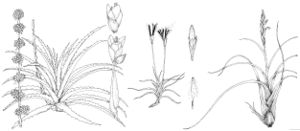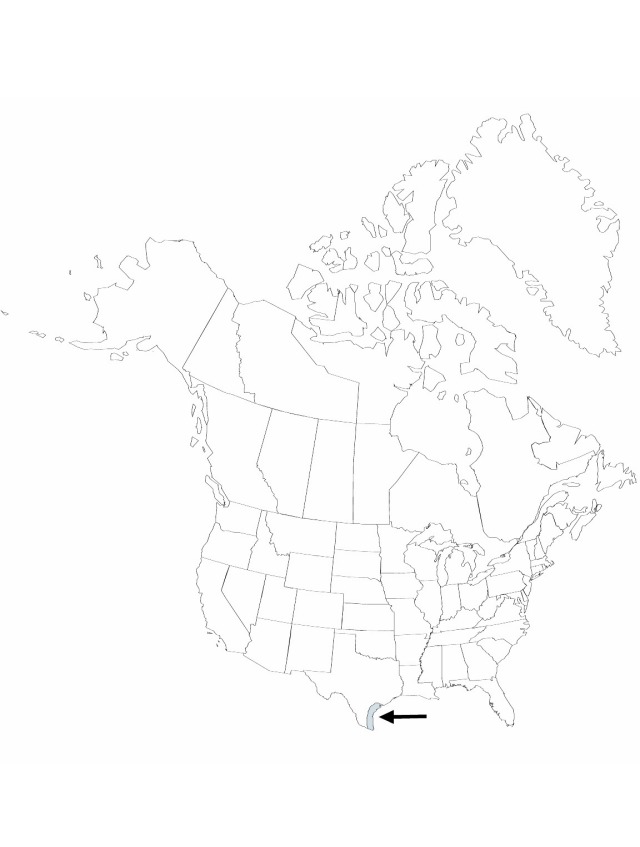Tillandsia baileyi
Flora of the Southeastern United States 246, 1328. 1903.
Plants usually several individuals in cluster, flowering to 20–40 cm. Stems short. Leaves 6–14 in small rosette, many-ranked, slightly contorted, gray-green to silver, 5–40 × 0.3–0.7 cm, densely appressed-grayish-scaly; sheath pale to nearly chestnut-brown within, ovate, conspicuously inflated, passing gradually into blade, forming small pseudobulb, 1.5–2.5 cm wide; blade linear, semisucculent, margins involute, apex acute. Inflorescences: scape conspicuous, erect or ascending, 7–15 cm, 2–3 mm diam.; bracts densely imbricate, erect to spreading, like leaves but smaller; sheath of bracts narrowing gradually into blade; spikes usually ascending, pinnate, linear, compressed, 3–7 × 0.6–1 cm, apex acute to obtuse; branches rarely 1–2. Floral bracts imbricate, erect, pink to dark rose, broad (covering all or most of rachis, rachis not visible at anthesis), elliptic, not keeled, 1.5–2.3 cm, thin-leathery, base not visible at anthesis, apex broadly acute, surfaces densely grayish-scaly. Flowers 5–15, conspicuous; sepals with adaxial pair short-connate, lanceolate, keeled, 1.3–1.6 cm, papery, prominently veined, apex acute, surfaces scaly; corolla tubular; petals erect, purple, ligulate, to 3 cm; stamens exserted; stigma exserted, conduplicate-spiral. Fruits 2.5–4 cm.
Phenology: Flowering spring.
Habitat: Epiphytic in dry thickets, woods
Elevation: 5–100 m
Discussion
Selected References
None.

